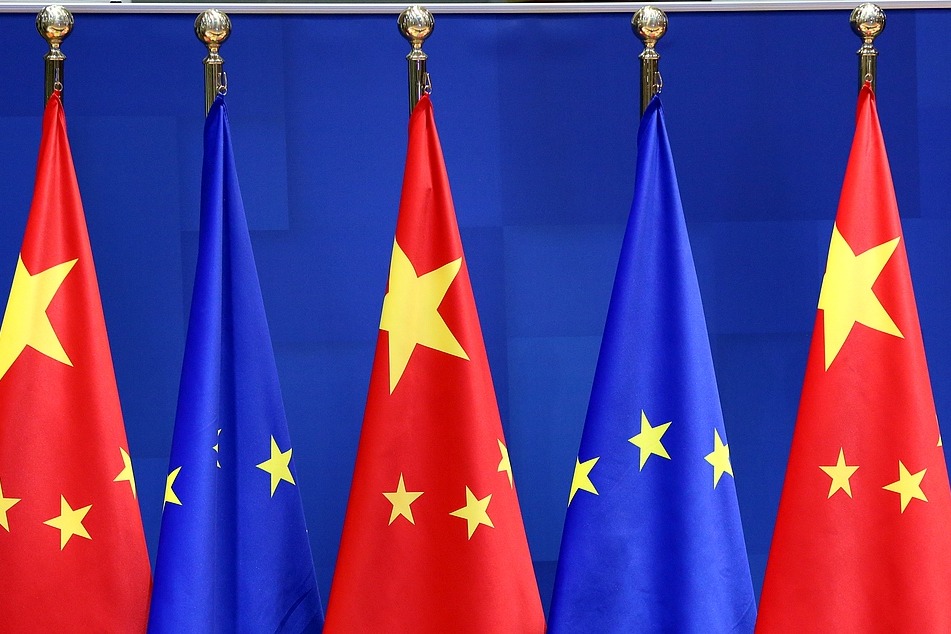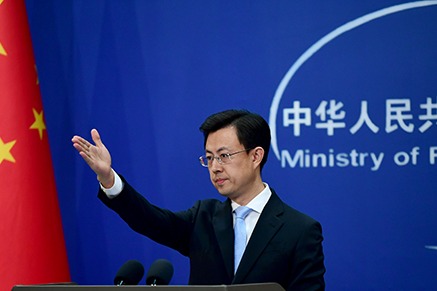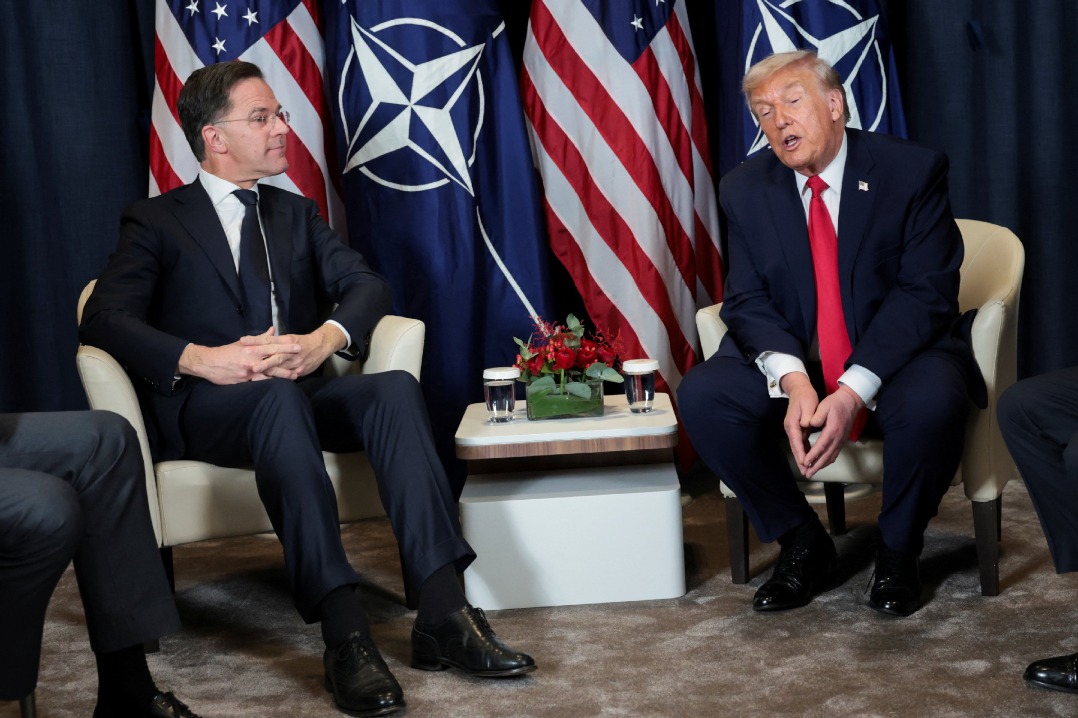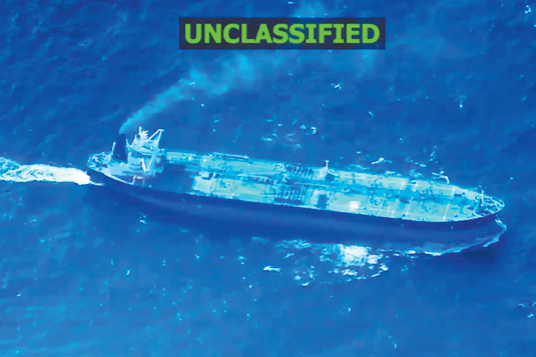Opposition to US' intl war drive revealed at summit

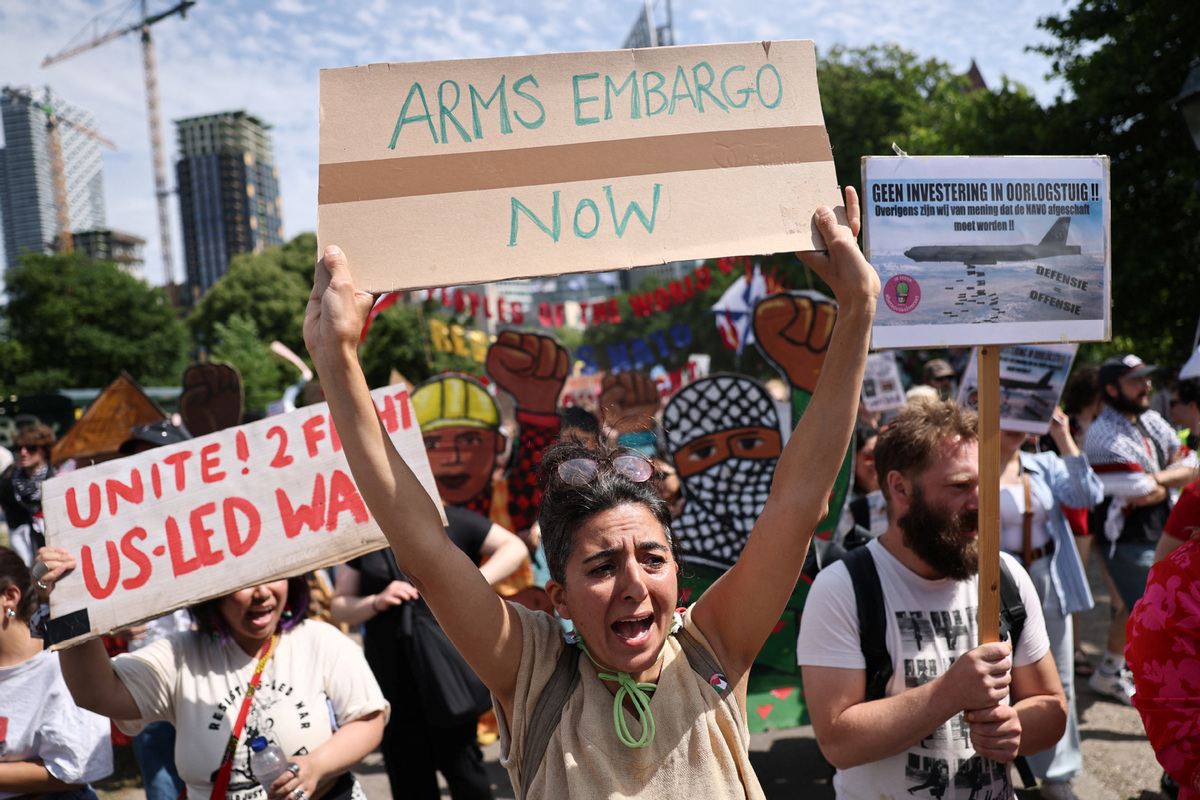
Although it was billed as a demonstration against NATO's "warmongering" and its huge military spending drive, the swelling opposition to Israel's ongoing military operations in the Gaza Strip and to the bombing of Iran by Israel and the United States was clearly palpable.
A summit to counter the 77th annual meeting of NATO, a 32-nation security alliance, was held on Saturday and Sunday in The Hague, in which people from over 17 countries participated.
The NATO summit endorsed a higher defense spending of 5 percent of GDP in response to a demand made by US President Donald Trump. It is clear that all Trump is interested in is securing funding for his global war.
As the largest security alliance in the world, NATO's military spending amounted to $1,506 billion last year, which was 55 percent of the global military expenditure, according to the Stockholm International Peace Research Institute.
Some European countries and key NATO members, like the United Kingdom, are recklessly whipping up international tensions to justify these huge spending hikes.
Over 800 billion euros ($928 billion) has reportedly been secured for a massive European rearmament program. New US B61-12"tactical" nuclear bombs — designed for use on the battlefield — are reported to be already forward-deployed to NATO bases across Europe.
Meanwhile, French President Emmanuel Macron's nuclear deterrent proposal for Europe risks the deployment of Rafale jets armed with nuclear weapons in Poland — on Russia's border.
UK's Prime Minister Keir Starmer has put a NATO-first defense policy at the heart of his government's political program.
The newly published Strategic Defence Review asserts a "landmark shift" in the UK's nuclear weapons use "to war-fighting readiness to deter threats and strengthen security in the Euro Atlantic area".
The UK reasserts its role within the trilateral AUKUS treaty with the US and Australia, pledging the construction of nuclear-powered submarines to be "shared" with nonnuclear weapons state Australia, which will only further increase tensions in the Asia Pacific.
The review also recommends "enhanced UK participation in NATO's nuclear mission". This reflects talks between Starmer and Trump regarding Britain's purchase of nuclear-capable F-35A fighter jets, designed to launch the US B61-12 nuclear bombs. This increases the likelihood of these bombs being stationed at RAF Lakenheath in the UK, and also opens up the possibility of other US bases being upgraded.
While countries such as France and Germany have been trying to present the war drive as an alternative to Trump's militarism, NATO Secretary-General Mark Rutte has made absolutely clear this is all about ensuring that US plans to shift toward Asia are "coordinated with European allies". Successive NATO Strategic Concepts characterize China as a strategic competitor and a threat to NATO's interests, security and values. In short, European NATO states must pay for Trump's global war drive against China.
For those who participated in the debates at the counter-summit in The Hague over the weekend, there is great fear and outrage over the prospects of a possible nuclear war.
On the one hand, we face a future Europe bristling with even more nuclear weapons and the constant threat of nuclear confrontation with Russia. On the other hand, we see a global confrontation led by the US against China, which also risks nuclear conflict.
And Trump's bombing of Iran indicates how dangerous the world can be under his leadership.
In response, there is an acceleration in the opposition to this disastrous direction. Hundreds of thousands of people took to the streets of Rome, Italy and the UK. It is estimated that some 300,000 took part in demonstrations — almost all supporting Palestine and voicing their concerns over strikes on Iran.
Alongside this growing opposition to the austerity accompanying militarism, there is also a rising opposition to Britain's so-called special relationship with the US.
Polling shows an increasing opposition to US nuclear weapons being based in Britain — now at 61 percent of the population.
People rightly see the UK's military alliance with the US as deeply dangerous that risks drawing us into more wars. At a time of heightened nuclear threats, stationing US nuclear weapons in Britain puts us all on the nuclear frontline.
There is also huge anger at the undemocratic nature of hosting US bases. There has been no debate in the British Parliament on whether the UK should host these nuclear bombs and absolutely no consultation with residents, who will be at immediate risk if there is a nuclear attack or nuclear accident.
Protests at US bases like RAF Lakenheath are growing in frequency, size and intensity. In April, hundreds of people from across the country, the US, Japan, the Republic of Korea and Europe took part in a debate and nonviolent protest at the base.
Certainly, the counter-summit in The Hague reflected this international solidarity and reasserted the need to build a nuclear-free world based on peace and global cooperation.
The author is general secretary of UK-based Campaign for Nuclear Disarmament.

















